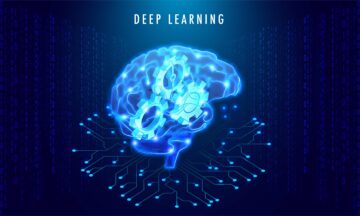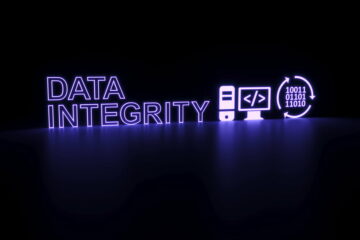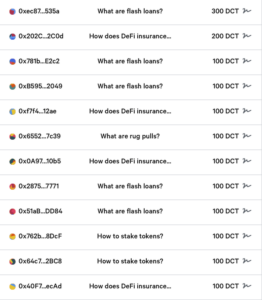
Digital technology can be incredibly disruptive— particularly in terms of how people do their jobs. The healthcare industry is certainly no exception. While adoption is sometimes slow— held up by a reluctant old guard, or perhaps just prohibitive pricing—it is steady.
Healthcare just doesn’t look the same as it did twenty years ago. From electronic records to data management, there are traces of digital technology everywhere you look.
In this article, we examine how these changes are having a direct impact on the way healthcare workers do their jobs.
Electronic Records
For the last decade or so, hospitals have been transitioning into digital record keeping. The idea is to make critical medical information more accessible to people who need it—like the patients themselves. If you move, or get in an accident out of town, the doctors treating you will have instant access to your medical technology.
However, in the context of healthcare, accessibility has its pros and cons. It’s good when doctors and patients can get information easily. It’s bad when anyone else can.
To combat this issue, HIPPA regulations fiercely guard how, when, and where healthcare information can be shared. Adherence to these guidelines can be difficult and quite tedious.
On the other hand, electronic record-related carelessness has led to significant privacy breaches. It’s a constantly evolving situation that has had a significant impact on healthcare providers’ lives.
People who are just coming out of nursing or medical school are well-trained in how to handle electronic records. However, for healthcare professionals who have been in practice for a long time, it has been a challenging adjustment.
Still, most people agree that it’s a good change that is having a positive impact on patient outcomes.
Data
Data processing and implementation continue to be a significant focus of hospitals all over the country. Right now, the technology exists to process information at never-before-seen levels. The ability to do so is less common.
Hospitals all over the country are actively seeking employees who can understand and implement data Informatic nurses specialize in exactly this. While this position has existed since the seventies, it has changed with the times, focusing now on how to process and implement enormous data sets— often in sync with AI-powered technology.
The goal of data implementation is to achieve better patient outcomes, but also to optimize workflows and effectively manage resources better.
New Security Concerns
Not all technological changes are for the best. The increased reliance on digital technology has also led to increased vulnerability. It used to be that if someone wanted to take something valuable from a hospital, they had to physically go there and remove it from the premises.
Not anymore. Hackers are able to gain access to sensitive information from anywhere in the world—often using simpler tools than the average person realizes.
In the Spring of 2021, an international terrorist organization known as Wizard Spider was able to remotely access and shut down Ireland’s digital healthcare network. They demanded $10 million to return access to the Irish government. Ireland refused.
As a result, the healthcare network was effectively offline for almost two months. During that time, Wizard Spider published hundreds of people’s private health information. The attack took many months to recover from and wound up costing significantly more than $10 million in repairs and patches.
Wizard Spider got in through a phishing email. That’s the big problem with digital networks. Even the best cyber security system is only as strong as its weakest link. If one person makes a mistake, the entire system is compromised.
Modern healthcare workers must constantly consider security a top priority. This sounds simpler than it actually is. For example, you probably think you are too smart to fall for a phishing email. But what if it looked like it came from Netflix?
What if absolutely every detail, from the email address, down the the logos, looked as if it came from a brand you know and trust? Would you follow their links? Give them your information?
There’s a pretty good chance that you would. Or if not you, one of your coworkers.
Consequently, healthcare workers are often routinely reminded of the risks that they face online. Many hospitals require regular trainings and employ the services of cybersecurity experts to help keep their networks safe.
Remote Consultations
Digital technology also makes it easier to provide flexible care. Many doctors and nurse practitioners will consult with their patients online. This is made easier by wearable health technology—remote devices that can monitor anything from heart rate and blood pressure to glucose levels.
Telehealth services allow patients to get basic care without needing to go to the hospital. It’s convenient for people who may find it difficult to leave their house. It’s also very helpful for hospitals— allowing them to expedite appointments by handling simpler considerations remotely.
While telehealth services do require training, they are actually easier for many healthcare providers to fulfill. In certain cases, they may even allow the caregiver to work from home. In most cases, telehealth care is simpler and less time-consuming than face-to-face appointments.
Conclusion
While digital technology in the healthcare setting has resulted in complications, there can be no denying that improves patient outcomes. Healthcare workers are forced to make adjustments, but that has always been the nature of the job.
Medical advancements are constantly evolving. It is up to healthcare workers to evolve alongside them. People who are currently in school or fresh out of it may already possess many of the skills described above, while veterans may need to adjust.
However, all healthcare workers, new or old, must accept that the job rewards and in fact requires a willingness to grow and learn more. Digital technology is just a continuation of that basic fact.
If you are interested in becoming a doctor or nurse, now is the great time to enroll in a program, and learn how to provide care in the modern world of digital technology.
- SEO Powered Content & PR Distribution. Get Amplified Today.
- PlatoData.Network Vertical Generative Ai. Empower Yourself. Access Here.
- PlatoAiStream. Web3 Intelligence. Knowledge Amplified. Access Here.
- PlatoESG. Carbon, CleanTech, Energy, Environment, Solar, Waste Management. Access Here.
- PlatoHealth. Biotech and Clinical Trials Intelligence. Access Here.
- Source: https://www.smartdatacollective.com/how-technology-is-impacting-a-variety-of-careers-in-healthcare/
- :has
- :is
- :not
- :where
- $10 million
- $UP
- 2021
- a
- ability
- Able
- above
- absolutely
- Accept
- access
- accessibility
- accessible
- accident
- Achieve
- actively
- actually
- address
- adherence
- adjust
- Adjustment
- adjustments
- Adobe
- Adoption
- advancements
- ago
- AI-powered
- All
- allow
- Allowing
- almost
- alongside
- already
- also
- always
- an
- and
- anymore
- anyone
- anything
- anywhere
- appointments
- ARE
- article
- AS
- At
- attack
- average
- Bad
- basic
- BE
- becoming
- been
- BEST
- Better
- Big
- blood
- Blood Pressure
- brand
- breaches
- but
- by
- came
- CAN
- Can Get
- care
- careers
- cases
- certain
- certainly
- challenging
- Chance
- change
- changed
- Changes
- combat
- coming
- Common
- complications
- Compromised
- conclusion
- Cons
- Consider
- considerations
- constantly
- context
- continuation
- continue
- Convenient
- country
- critical
- Currently
- cyber
- cyber security
- Cybersecurity
- data
- data management
- decade
- demanded
- described
- detail
- Devices
- DID
- difficult
- digital
- digital healthcare
- digital technology
- direct
- do
- Doctor
- Doctors
- Doesn’t
- down
- during
- easier
- easily
- effectively
- Electronic
- else
- employees
- enormous
- Entire
- Even
- Every
- everywhere
- evolve
- evolving
- exactly
- examine
- example
- exception
- existed
- exists
- expedite
- experts
- external
- Face
- fact
- Fall
- Fiercely
- Find
- flexible
- Focus
- focusing
- follow
- For
- forced
- fresh
- from
- Fulfill
- Gain
- get
- Give
- Go
- goal
- good
- got
- Government
- great
- Grow
- Guard
- guidelines
- hackers
- had
- hand
- handle
- Handling
- Have
- having
- Health
- health information
- healthcare
- Heart
- Held
- help
- helpful
- Home
- Hospital
- hospitals
- House
- How
- How To
- However
- HTML
- HTTPS
- Hundreds
- idea
- if
- Impact
- impacting
- implement
- implementation
- improves
- in
- increased
- incredibly
- information
- instant
- interested
- internal
- International
- into
- ireland
- Irish
- issue
- IT
- ITS
- Job
- Jobs
- jpg
- just
- Keep
- Know
- known
- Last
- LEARN
- Leave
- Led
- less
- levels
- like
- LINK
- links
- Lives
- Long
- long time
- Look
- looked
- made
- make
- MAKES
- manage
- management
- many
- May..
- medical
- million
- mistake
- Modern
- Monitor
- months
- more
- most
- move
- must
- Nature
- Need
- needing
- Netflix
- network
- networks
- New
- no
- now
- Nursing
- of
- offline
- often
- Old
- on
- ONE
- online
- only
- Optimize
- or
- organization
- Other
- out
- outcomes
- over
- particularly
- Patches
- patient
- patients
- People
- people’s
- perhaps
- person
- phishing
- Physically
- plato
- Plato Data Intelligence
- PlatoData
- position
- positive
- possess
- Post
- practice
- pressure
- pretty
- priority
- privacy
- private
- probably
- Problem
- process
- professionals
- Program
- PROS
- provide
- providers
- published
- quite
- Rate
- record
- records
- Recover
- regular
- regulations
- reliance
- remove
- repairs
- require
- requires
- Resources
- result
- resulted
- return
- Rewards
- right
- risks
- routinely
- safe
- same
- School
- security
- seeking
- sensitive
- Services
- setting
- shared
- Shut down
- significant
- significantly
- simpler
- since
- situation
- skills
- smart
- So
- Someone
- something
- sometimes
- specialize
- spring
- steady
- strong
- system
- Take
- technological
- Technology
- telehealth
- terms
- terrorist
- than
- that
- The
- their
- Them
- themselves
- There.
- These
- they
- Think
- this
- Through
- time
- time-consuming
- times
- to
- too
- took
- tools
- top
- town
- Training
- trainings
- transitioning
- treating
- Trust
- twenty
- two
- understand
- used
- using
- Valuable
- variety
- very
- Veterans
- vulnerability
- wanted
- was
- Way..
- we
- wearable
- What
- when
- while
- WHO
- will
- Willingness
- with
- without
- Work
- work from home
- workers
- workflows
- world
- would
- years
- you
- Your
- zephyrnet







